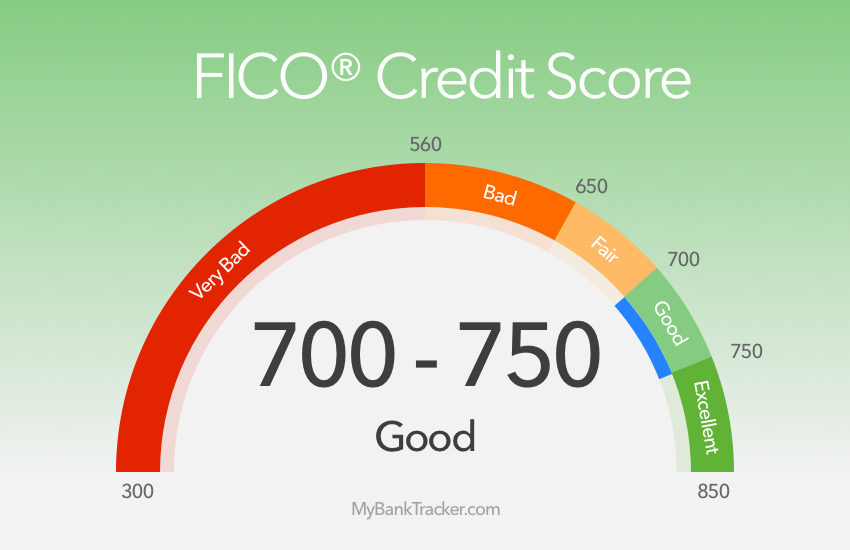
What is a Good Credit Score? Your Essential Guide to Financial Health
In today’s financial landscape, your credit score is more than just a number – it’s a powerful tool that unlocks opportunities, saves you money, and reflects your financial reliability. Whether you’re dreaming of buying a home, getting a new car, or simply want to qualify for better credit card offers, understanding what a good credit score is and how to achieve it is absolutely essential.
For many, the world of credit scores can seem confusing and intimidating. You hear terms like FICO, VantageScore, "excellent," and "poor," and it’s easy to get lost. But don’t worry! This comprehensive guide will demystify credit scores, clearly define what’s considered "good," and equip you with the knowledge to improve your financial standing.
What Exactly Is a Credit Score?
Think of your credit score as a financial report card. It’s a three-digit number, typically ranging from 300 to 850, that lenders use to assess how likely you are to repay borrowed money. The higher your score, the lower the risk you pose to lenders, and the more favorable terms you’ll receive.
Your credit score is calculated based on information in your credit reports, which track your borrowing and repayment history. There are two primary credit scoring models used in the United States:
- FICO Score: The most widely used credit scoring model, FICO (Fair Isaac Corporation) scores are used in over 90% of lending decisions. There are several versions of the FICO score, but the most commonly cited is the FICO Score 8.
- VantageScore: Developed by the three major credit bureaus (Experian, Equifax, and TransUnion), VantageScore is another popular model. While it uses similar data to FICO, its weighting of factors can differ slightly.
Both models aim to provide a quick snapshot of your creditworthiness, helping banks, credit card companies, and other lenders make informed decisions.
The Magic Numbers: What’s Considered a Good Credit Score?
While there isn’t one single "magic number" that defines a good credit score, both FICO and VantageScore models categorize scores into ranges. Understanding these ranges is key to knowing where you stand and what you need to aim for.
Let’s break down the common credit score ranges:
FICO Score Ranges (300-850)
| Score Range | Category | What it Means |
|---|---|---|
| 800-850 | Excellent | This is the top tier! Borrowers in this range are seen as extremely low-risk. They qualify for the best interest rates, top-tier credit cards with premium rewards, and generally have no trouble getting approved for loans. |
| 740-799 | Very Good | A fantastic score! You’re considered a highly reliable borrower and will qualify for excellent interest rates and loan terms. Most lenders will be eager to work with you. |
| 670-739 | Good | This is the sweet spot for many. A "good" credit score indicates you’re a responsible borrower. You’ll likely qualify for most loans and credit cards, though not always with the absolute lowest interest rates compared to "Excellent" scores. |
| 580-669 | Fair | This range suggests some past credit challenges or limited credit history. You might still get approved for credit, but often with higher interest rates and less favorable terms. |
| 300-579 | Poor | Scores in this range indicate significant credit challenges, such as late payments, collections, or bankruptcies. Getting approved for new credit will be very difficult, and if you are, the terms will be very expensive. |
VantageScore Ranges (300-850)
VantageScore ranges are quite similar to FICO, though the exact cutoffs can vary slightly between versions. Here’s a general overview for VantageScore 3.0 and 4.0:
| Score Range | Category |
|---|---|
| 781-850 | Excellent |
| 661-780 | Good |
| 601-660 | Fair |
| 500-600 | Poor |
| 300-499 | Very Poor |
The Bottom Line: When people ask, "What is a good credit score?" they’re usually referring to a score in the 670-739 (FICO) or 661-780 (VantageScore) range. Achieving a score within these ranges opens up a world of financial opportunities.
Why Does a Good Credit Score Matter So Much?
Having a good credit score isn’t just about bragging rights; it has a tangible impact on nearly every aspect of your financial life. Here’s why it’s so important:
- Lower Interest Rates on Loans: This is perhaps the biggest benefit. Whether it’s a mortgage, a car loan, or a personal loan, a higher credit score means you’ll qualify for significantly lower interest rates. Over the lifetime of a loan, this can save you thousands, even tens of thousands, of dollars.
- Example: On a $300,000, 30-year mortgage, a difference of just 1% in interest rate can save you over $60,000!
- Easier Loan and Credit Card Approvals: Lenders see you as a trustworthy borrower, making it much simpler to get approved for the credit products you need.
- Better Credit Card Offers: Good credit unlocks access to premium credit cards with attractive rewards programs (cash back, travel points), sign-up bonuses, and lower annual percentage rates (APRs).
- Lower Insurance Premiums: In many states, insurance companies (auto, home) use credit-based insurance scores (derived from your credit report) to help determine your rates. A good score can lead to lower premiums.
- Easier Rental Approvals and Lower Security Deposits: Landlords often check credit scores to assess a prospective tenant’s reliability. A good score can help you secure the apartment you want and sometimes even reduce the security deposit required.
- Utility Services: Some utility companies (electricity, gas, water) check credit when you sign up for service. A good score might mean you won’t need to pay a security deposit.
- Even Some Job Opportunities: While less common, certain jobs, especially those in finance or requiring high levels of trust, may involve a credit check (though usually a "soft pull" that doesn’t impact your score).
In essence, a good credit score gives you financial flexibility and power, allowing you to achieve your goals more easily and affordably.
What Factors Influence Your Credit Score? (The 5 Pillars)
Your credit score isn’t a random number; it’s calculated based on specific factors from your credit report. Understanding these "pillars" is crucial for knowing how to build and maintain a good score.
Here are the main categories that influence your FICO score (VantageScore uses similar factors with slightly different weighting):
-
Payment History (35%):
- What it is: This is the most important factor! It tracks whether you pay your bills on time, every time.
- Impact: Late payments (30, 60, 90+ days past due), collections, bankruptcies, and foreclosures severely damage your score. Consistent on-time payments build it up.
- Key Takeaway: Pay your bills on time, no matter what!
-
Amounts Owed / Credit Utilization (30%):
- What it is: This refers to how much credit you’re currently using compared to your total available credit. It’s often expressed as a percentage.
- Impact: High credit utilization (e.g., maxing out your credit cards) suggests you might be over-reliant on credit and struggling financially. Lenders prefer to see low utilization.
- Rule of Thumb: Aim to keep your credit utilization below 30% on each credit card and overall. Lower is better, ideally below 10%.
-
Length of Credit History (15%):
- What it is: How long your credit accounts have been open, including the age of your oldest account, newest account, and the average age of all your accounts.
- Impact: A longer credit history generally looks better to lenders because it provides more data to assess your long-term reliability.
- Tip: Don’t rush to close old, paid-off accounts, as this can shorten your average credit age.
-
New Credit (10%):
- What it is: This factor considers recent credit inquiries and newly opened accounts.
- Impact: Applying for too much new credit in a short period (multiple "hard inquiries") can temporarily lower your score because it suggests you might be in financial distress or taking on too much debt.
- Note: "Soft inquiries" (like checking your own credit or pre-approvals) do not affect your score.
-
Credit Mix (10%):
- What it is: This looks at the different types of credit accounts you have.
- Impact: Having a healthy mix of revolving credit (like credit cards) and installment credit (like mortgages or car loans) can show you can manage various types of debt responsibly. However, don’t open accounts you don’t need just to diversify your mix.
How to Achieve and Maintain a Good Credit Score (Actionable Advice)
Building and maintaining a good credit score is a marathon, not a sprint. It requires consistent, responsible financial habits. Here’s how you can get started and keep your score healthy:
-
Pay Your Bills on Time, Every Time:
- Strategy: Set up automatic payments, reminders, or calendar alerts. Even one late payment can significantly ding your score.
- Why it works: Payment history is the biggest factor in your score.
-
Keep Your Credit Utilization Low:
- Strategy: Pay down credit card balances as much as possible, ideally below 30% of your available limit. If you have a $1,000 limit, try to keep your balance below $300.
- Why it works: High utilization signals higher risk to lenders.
-
Avoid Opening Too Many New Accounts at Once:
- Strategy: Only apply for new credit when you genuinely need it. Space out applications if you need multiple loans or cards.
- Why it works: Multiple hard inquiries and new accounts in a short period can lower your average account age and signal potential risk.
-
Don’t Close Old, Paid-Off Accounts:
- Strategy: Unless an account has high fees or is no longer useful, consider keeping it open.
- Why it works: Closing an old account reduces your total available credit and shortens your average credit history, both of which can negatively impact your score.
-
Monitor Your Credit Report Regularly:
- Strategy: You’re entitled to a free credit report from each of the three major bureaus (Experian, Equifax, TransUnion) once every 12 months via AnnualCreditReport.com. Take advantage of this!
- Why it works: Checking your report helps you spot errors or fraudulent activity that could be hurting your score.
-
Dispute Any Errors on Your Credit Report:
- Strategy: If you find inaccuracies (e.g., a late payment reported incorrectly, an account you never opened), dispute them directly with the credit bureau and the creditor.
- Why it works: Correcting errors can significantly improve your score.
-
Consider a Secured Credit Card or Credit Builder Loan (for beginners):
- Strategy: If you have no credit history or poor credit, these tools can help you build a positive payment history. A secured card requires a cash deposit as collateral, while a credit builder loan holds the loan amount in an account until you’ve paid it off.
- Why it works: They allow you to demonstrate responsible borrowing and repayment habits, which are then reported to the credit bureaus.
Conclusion
Understanding "what is a good credit score" is the first step on your journey to financial empowerment. A good credit score is not just a number; it’s a testament to your financial responsibility and a gateway to better opportunities, from lower interest rates on major purchases to easier access to essential services.
By consistently practicing smart financial habits – paying on time, keeping utilization low, and monitoring your reports – you can build and maintain a strong credit score that serves you well throughout your life. Start taking control of your credit today, and unlock a future of greater financial freedom.




Post Comment